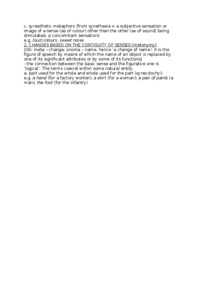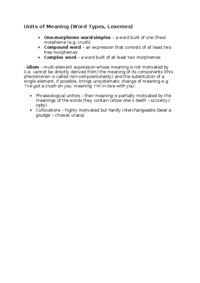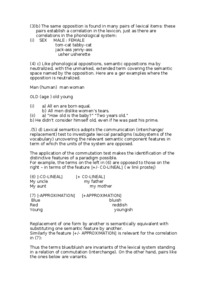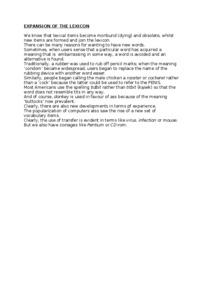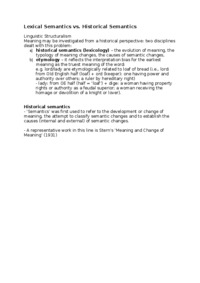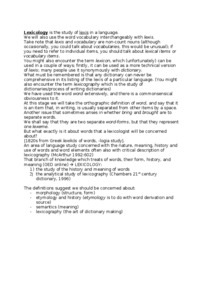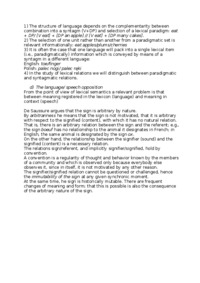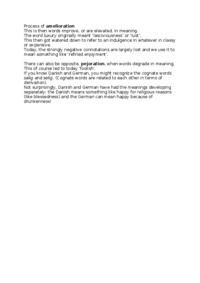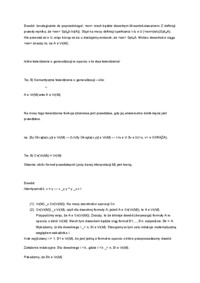Types of word meaning-opracowanie
- Uniwersytet Rzeszowski
- Semantyka logiczna
Types of word meaning Lexical - is the meaning proper to the given linguistic unit in all its forms and distributions. L. meaning is the realization of concept or emotion by means of a definite language system. L. meaning is the same in different grammatical forms of the same word:


